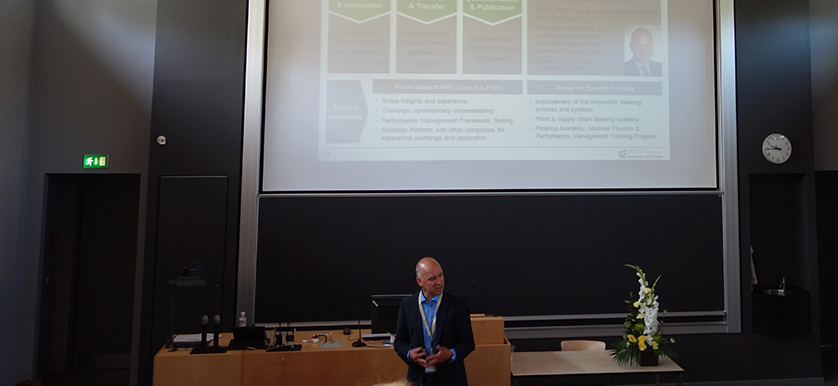On Relative-Performance-Contracting with Franz Wirnsperger, at the PMA 2014 Conference
The presentation “Increasing Flexibility and Performance Orientation with Relative-Performance-Contracting” was offered, in the third day of the PMA 2014 Conference, by Franz Wirnsperger, Director at Hilti Lab for Integrated Performance Management, University of St. Gallen.
His research study focused on understanding wow relative targets and relative measurements can enhance the results and effects of a Performance Management System. More specifically, the study aimed at answering four main questions, related to the PLAN-DO-CHECK-Act stages.
In order to answer the raised questions, the researcher developed a new Performance Management System concept, through the use of qualitative research.
Some of the most important theories that Franz Wirnsperger emphasized from the performed literature review are:
- System Theory;
- Principal-Agent-Theory;
- Goal Setting Theory;
- Self-Determination Theory.
The researcher also performed an extensive case study, in order to understand the relative performance contracting concept, which he concluded to be comprised of four elements:
- Relative Target Setting;
- Flexible Allocation of Resources;
- Relative Measurement;
- Relative Compensation.
In the company he analyzed for the case study, a top down vision based on relative benchmarking, the introduction of stronger process perspective and KPIs had important implications, such as increasing awareness of the performance level and stimulating competitiveness. The effect of introducing all the above mentioned elements within the analyzed company are presented in Wirnsperger’s research study.
The main conclusions the researcher arrived at are:
- Relative-Performance-Contracting (RPC) offers a theoretical explanation on how to design a Performance Management System (named by the author MCS);
- RPC offers the premises to cope with the high degree of volatility and unpredictability;
- It provides the conditions for a more balanced approach on MSC.

Tags: Performance Management, PMA 2014 Conference





